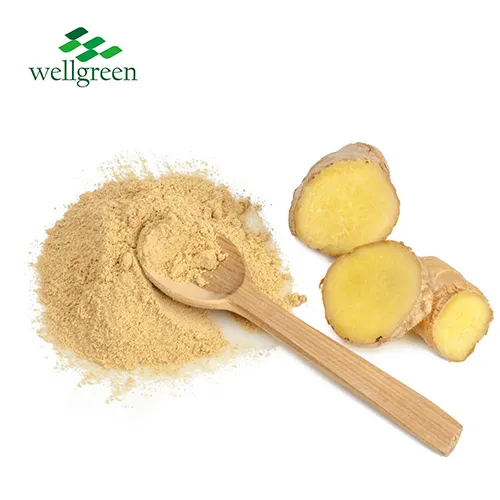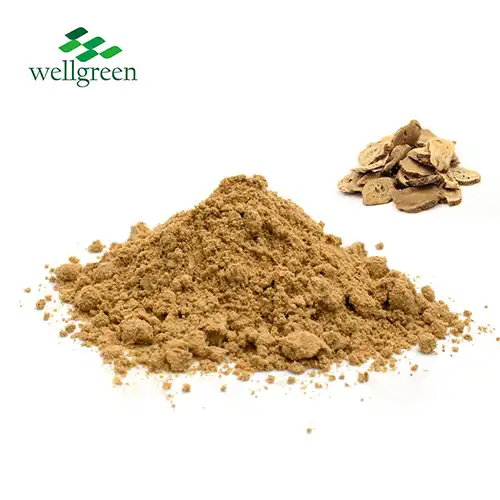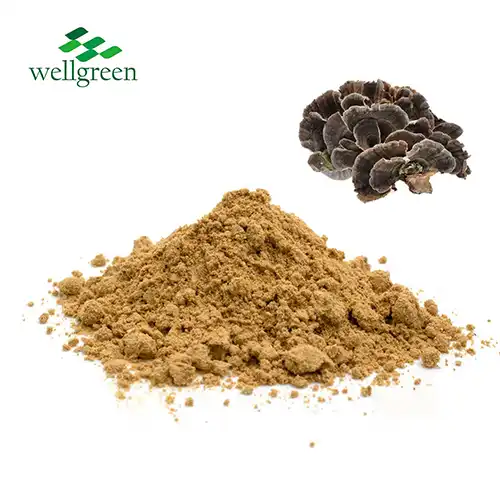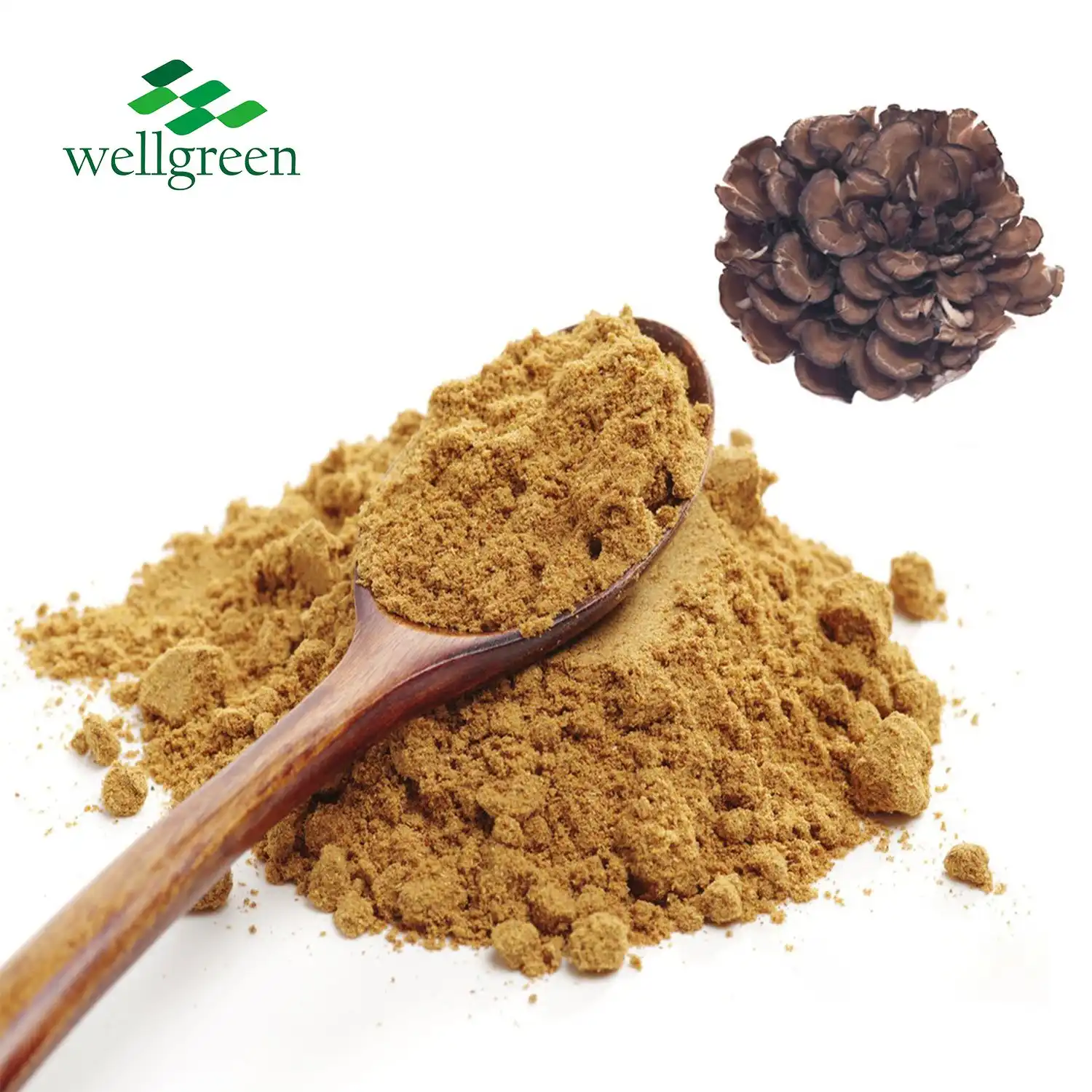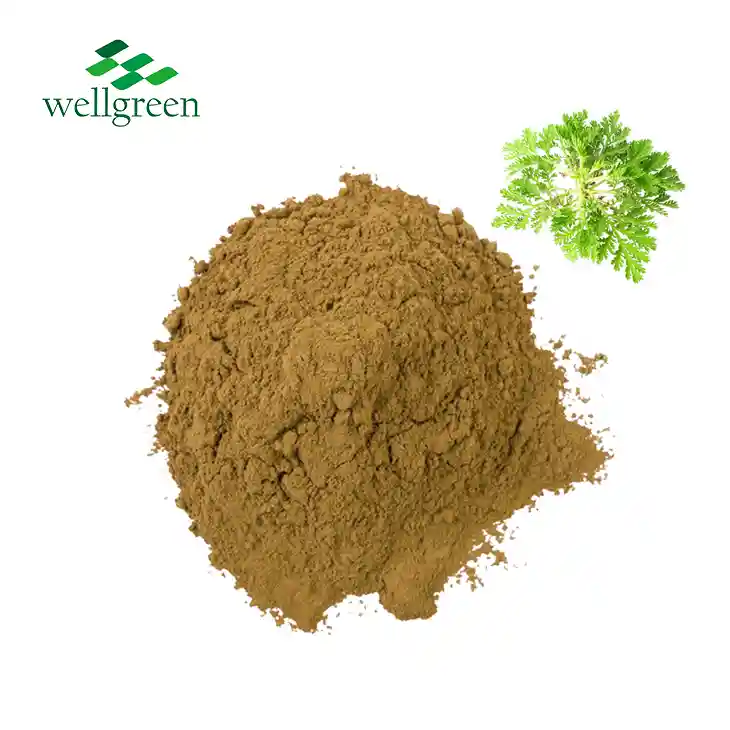Is Horse Chestnut Extract Good For You?
2025-09-16 13:38:16
Horse chestnut extract, derived from the seeds of the Aesculus hippocastanum tree, has gained popularity for its potential health benefits. Research suggests that horse chestnut extract powder may indeed be good for you, particularly in supporting vascular health. The active compound, aescin, has shown promise in improving circulation and reducing inflammation in the veins. Studies indicate that horse chestnut seed extract powder can be effective in managing symptoms of chronic venous insufficiency, such as leg swelling and discomfort. While generally considered safe when used as directed, it's important to note that raw horse chestnut seeds contain toxic compounds, so only standardized extracts should be used. As with any supplement, consulting with a healthcare professional before incorporating horse chestnut extract into your routine is advisable to ensure it's appropriate for your individual health needs.
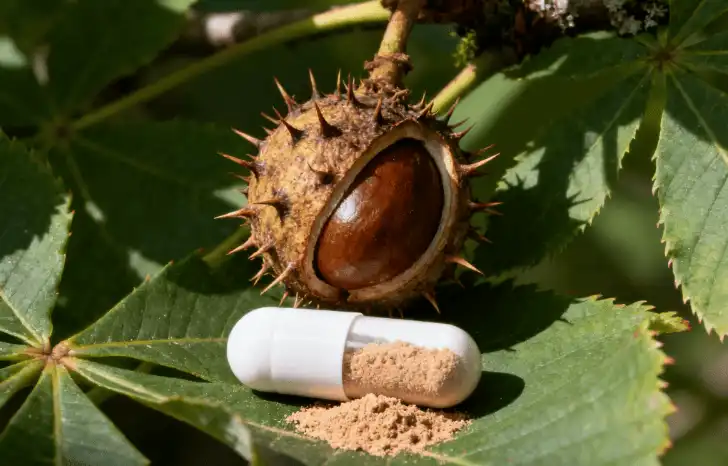
What Scientific Studies Support Horse Chestnut Extract?
Clinical Trials on Chronic Venous Insufficiency
Numerous clinical trials have investigated the efficacy of horse chestnut extract powder in treating chronic venous insufficiency (CVI). A systematic review published in the Cochrane Database of Systematic Reviews analyzed 17 randomized controlled trials involving over 1,000 participants. The results indicated that Aesculus hippocastanum extract was significantly more effective than placebo in reducing leg pain, swelling, and itching associated with CVI. The standardized horse chestnut seed extract powder used in these studies typically contained 50-150 mg of aescin, the primary active compound.
Research on Edema Reduction
Horse chestnut seed extract powder has demonstrated remarkable potential in reducing edema, or fluid retention in tissues. A study published in the Archives of Dermatology compared the effects of compression stockings with horse chestnut seed extract powder in patients with CVI. The research found that the extract powder was as effective as compression therapy in reducing leg volume, suggesting it could be a viable alternative for those who find compression stockings uncomfortable or impractical.
Antioxidant and Anti-inflammatory Properties
Beyond vascular health, horse chestnut extract powder has been studied for its antioxidant and anti-inflammatory properties. In vitro and animal studies have shown that aescin, the primary active compound in horse chestnut seed extract powder, can scavenge free radicals and reduce oxidative stress. These properties may contribute to its overall health benefits and potential applications in managing inflammatory conditions.
Safety and Potential Side Effects of Horse Chestnut Extract
Recommended Dosage and Usage Guidelines
When considering the use of horse chestnut extract, it's crucial to adhere to recommended dosages. Most clinical studies have used standardized extracts containing 50-150 mg of aescin daily, divided into two or three doses. It's important to note that these recommendations are based on standardized extracts, not raw horse chestnut seeds or non-standardized preparations. Always follow the instructions provided by the manufacturer or as directed by a healthcare professional.
Common Side Effects and Precautions
While horse chestnut extract powder is generally well-tolerated, some individuals may experience mild side effects. These can include gastrointestinal discomfort, headache, dizziness, or itching. If you experience any severe or persistent side effects, discontinue use and consult a healthcare provider. It's also important to note that raw horse chestnut seeds contain esculin, a toxic compound that can cause severe side effects. Only use standardized extracts that have had this compound removed.
Interactions with Medications and Contraindications
Horse chestnut extract may interact with certain medications, particularly blood thinners and diabetes medications. Due to its potential to affect blood sugar levels and increase the risk of bleeding, individuals taking anticoagulants or those with bleeding disorders should exercise caution. Additionally, pregnant or breastfeeding women, as well as those with liver or kidney disease, should avoid using horse chestnut extract without medical supervision. Always consult with a healthcare professional before starting any new supplement regimen, especially if you have pre-existing health conditions or are taking medications.
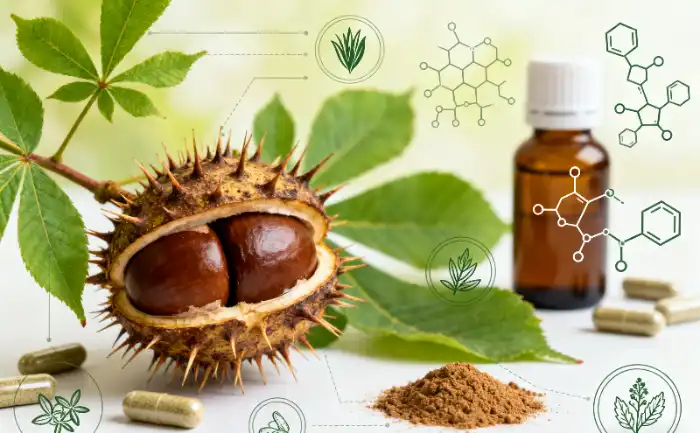
Nutritional and Medicinal Value of Horse Chestnut Extract
Active Compounds and Their Benefits
The primary active compound in horse chestnut extract powder is aescin, a mixture of saponins that gives the extract its therapeutic properties. Aescin has been shown to improve vascular tone, reduce capillary permeability, and possess anti-inflammatory effects. These properties contribute to its effectiveness in managing venous insufficiency and edema. Additionally, horse chestnut extract contains flavonoids such as quercetin and kaempferol, which contribute to its antioxidant properties. These compounds work synergistically to support overall vascular health and may offer protection against oxidative stress.
Potential Applications Beyond Vascular Health
While horse chestnut extract is primarily known for its benefits in vascular health, research suggests it may have broader applications. Some studies have investigated its potential in managing hemorrhoids, due to its ability to strengthen blood vessel walls and reduce inflammation. Preliminary research has also explored its use in sports medicine for reducing exercise-induced inflammation and muscle damage. Furthermore, the antioxidant properties of Aesculus hippocastanum extract have led to investigations into its potential role in supporting skin health and anti-aging strategies.
Comparison with Other Natural Vascular Health Supplements
When compared to other natural supplements for vascular health, horse chestnut extract stands out for its well-documented efficacy in managing chronic venous insufficiency. While supplements like ginkgo biloba and grape seed extract also offer vascular benefits, horse chestnut seed extract powder has more robust clinical evidence specifically for CVI. However, it's important to note that each supplement may have unique benefits, and the choice of supplement should be based on individual health needs and in consultation with a healthcare provider. Some individuals may benefit from a combination of vascular health supplements, tailored to their specific conditions and health goals.
Conclusion
Horse chestnut extract powder offers promising benefits for vascular health, particularly in managing chronic venous insufficiency and edema. Its active compounds, primarily aescin, have demonstrated efficacy in improving circulation and reducing inflammation. While generally safe when used as directed, it's crucial to use standardized extracts and be aware of potential interactions and side effects. As research continues to uncover new potential applications, horse chestnut extract powder remains a valuable option for those seeking natural support for vascular health. However, as with any supplement, it's essential to approach its use with informed caution and professional guidance.
Contact Us
Ready to explore the benefits of high-quality horse chestnut extract powder? Contact Xi'an Wellgreen, a professional horse chestnut extract powder factory, at wgt@allwellcn.com for more information on our standardized, professionally manufactured extracts. Our team is ready to assist you in finding the right product for your health needs.
References
1. Pittler MH, Ernst E. Horse chestnut seed extract for chronic venous insufficiency. Cochrane Database of Systematic Reviews. 2012.
2. Siebert U, Brach M, Sroczynski G, Berla K. Efficacy, routine effectiveness, and safety of horsechestnut seed extract in the treatment of chronic venous insufficiency. International Angiology. 2002.
3. Diehm C, Trampisch HJ, Lange S, Schmidt C. Comparison of leg compression stocking and oral horse-chestnut seed extract therapy in patients with chronic venous insufficiency. Lancet. 1996.
4. Wilkinson JA, Brown AM. Horse chestnut – Aesculus hippocastanum: potential applications in cosmetic skin-care products. International Journal of Cosmetic Science. 1999.
5. Guillaume M, Padioleau F. Veinotonic effect, vascular protection, antiinflammatory and free radical scavenging properties of horse chestnut extract. Arzneimittelforschung. 1994.
6. Sirtori CR. Aescin: pharmacology, pharmacokinetics and therapeutic profile. Pharmacological Research. 2001.

